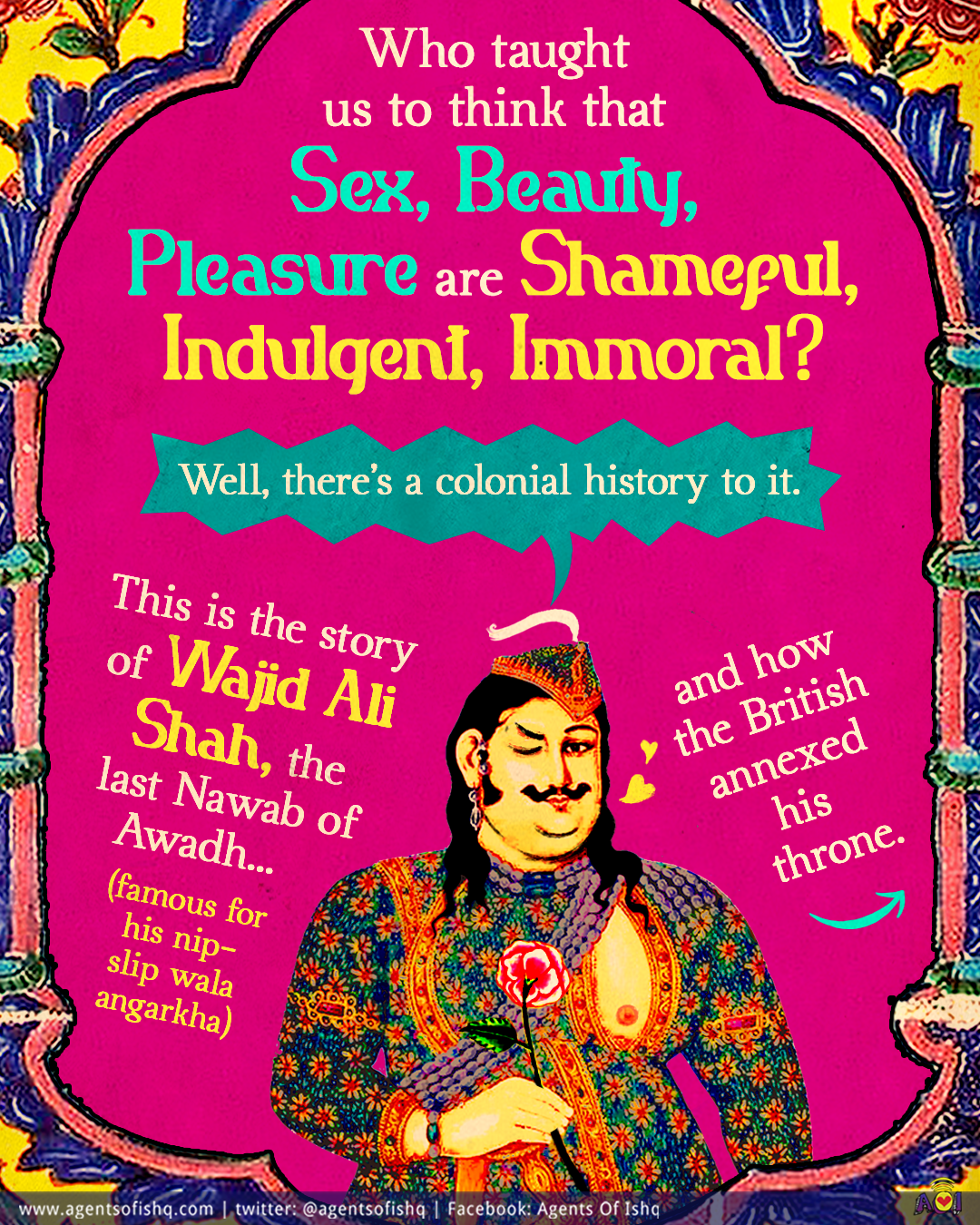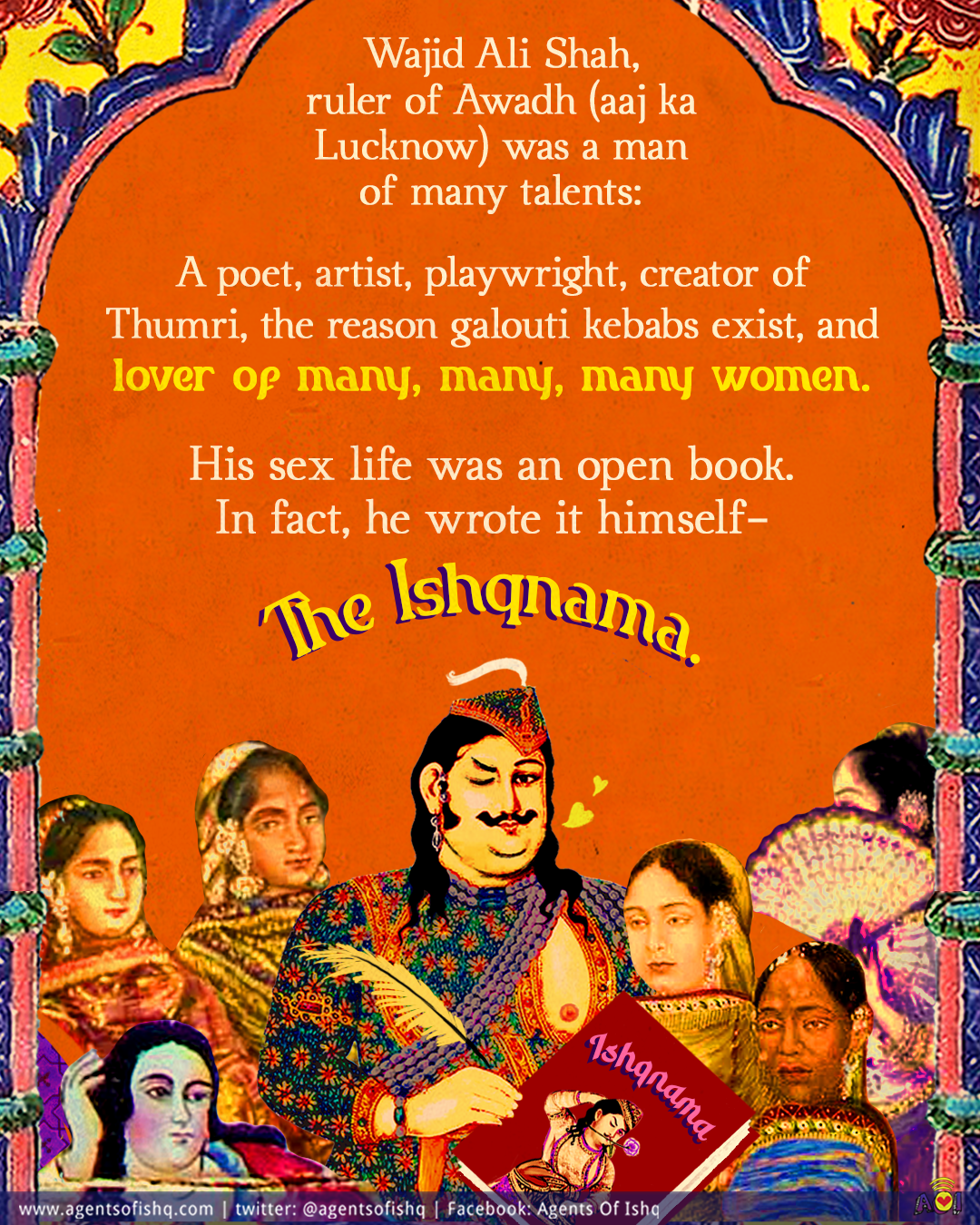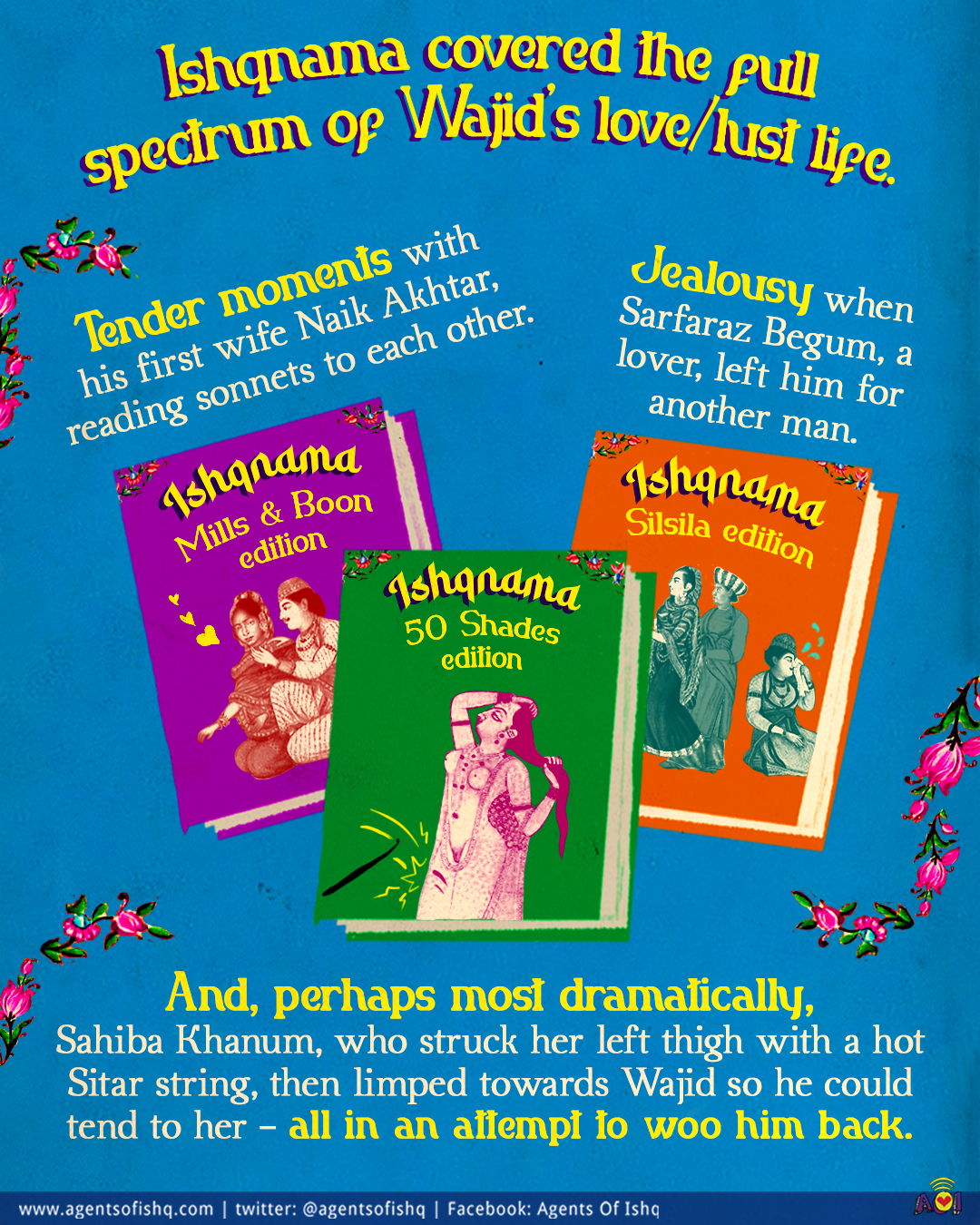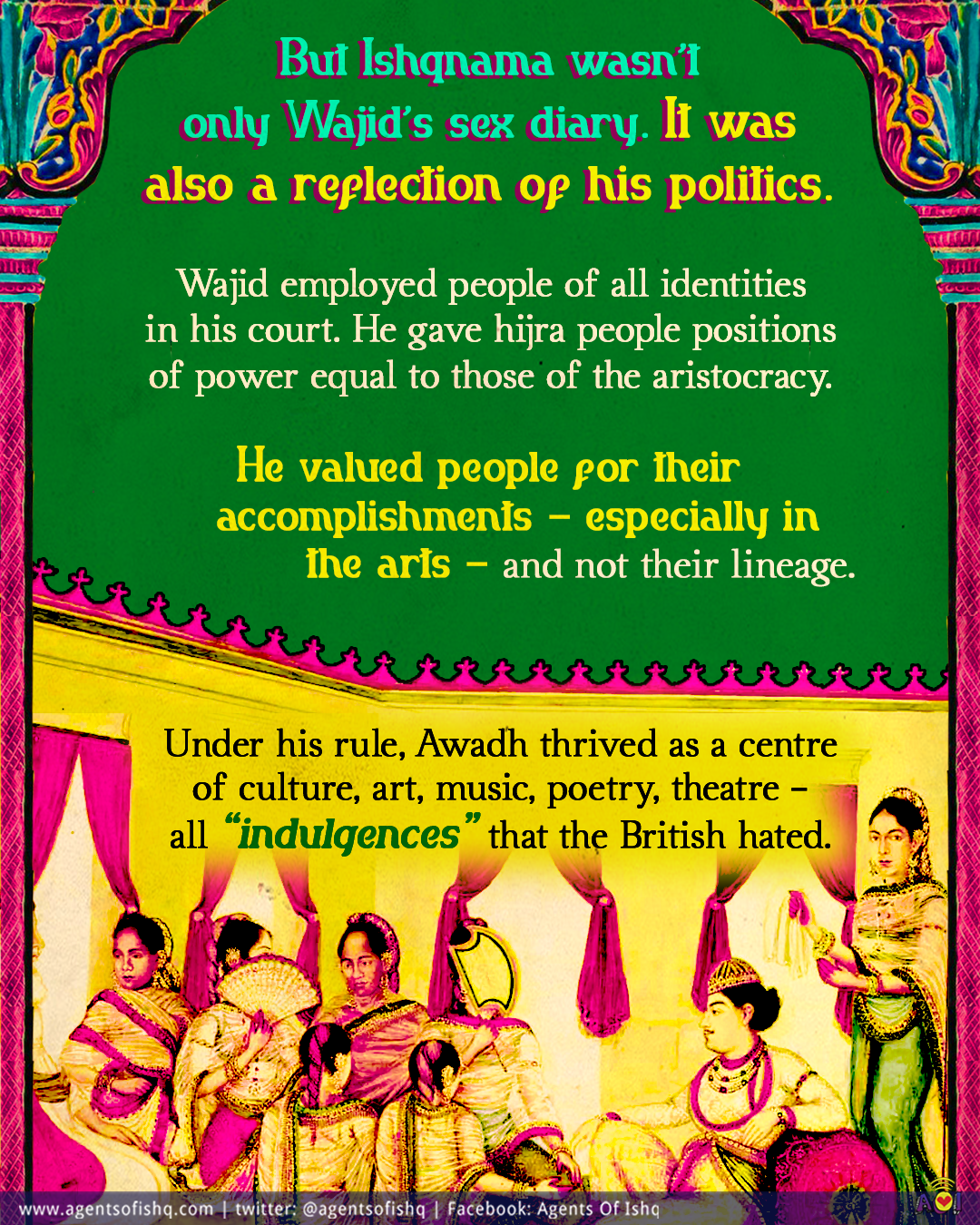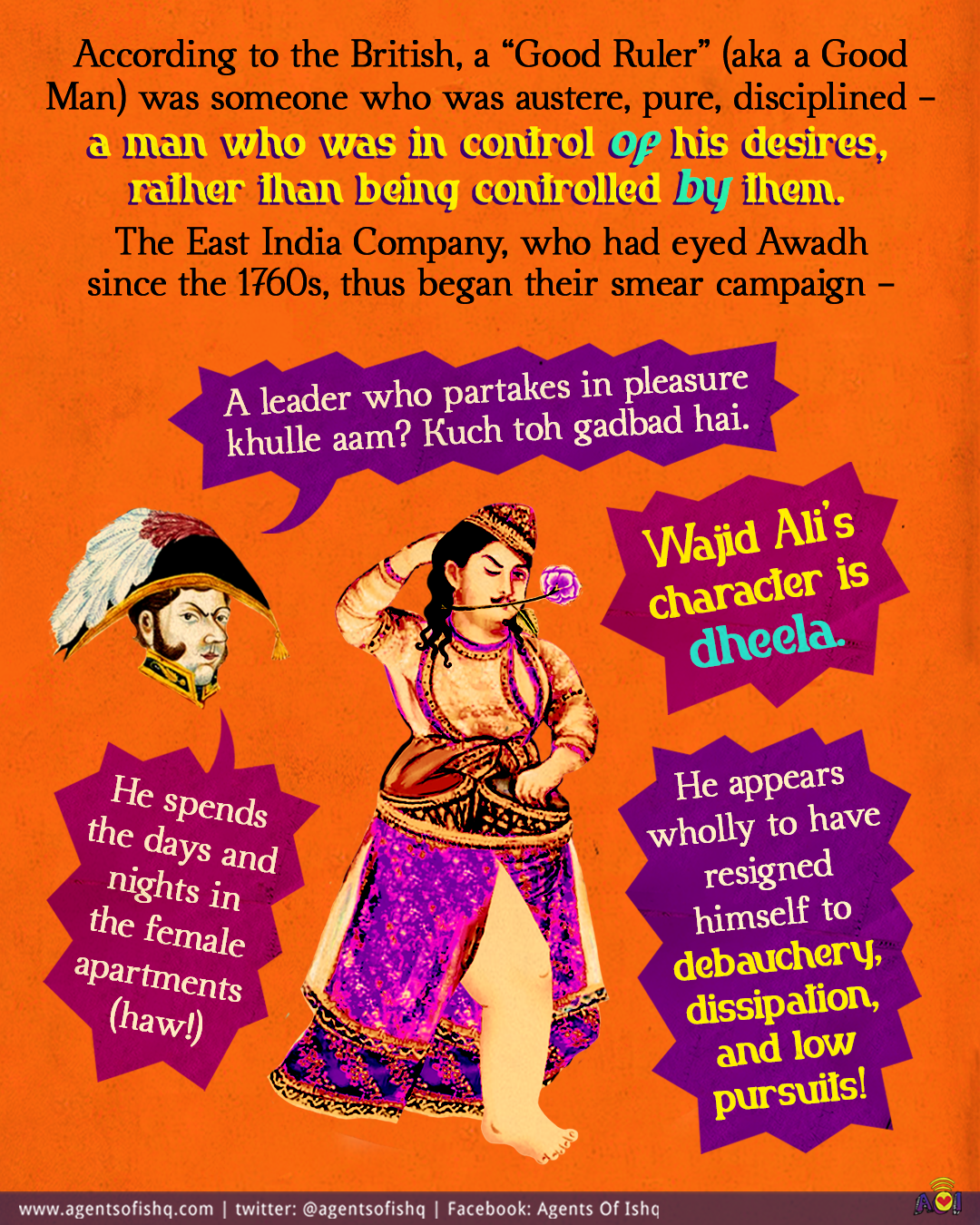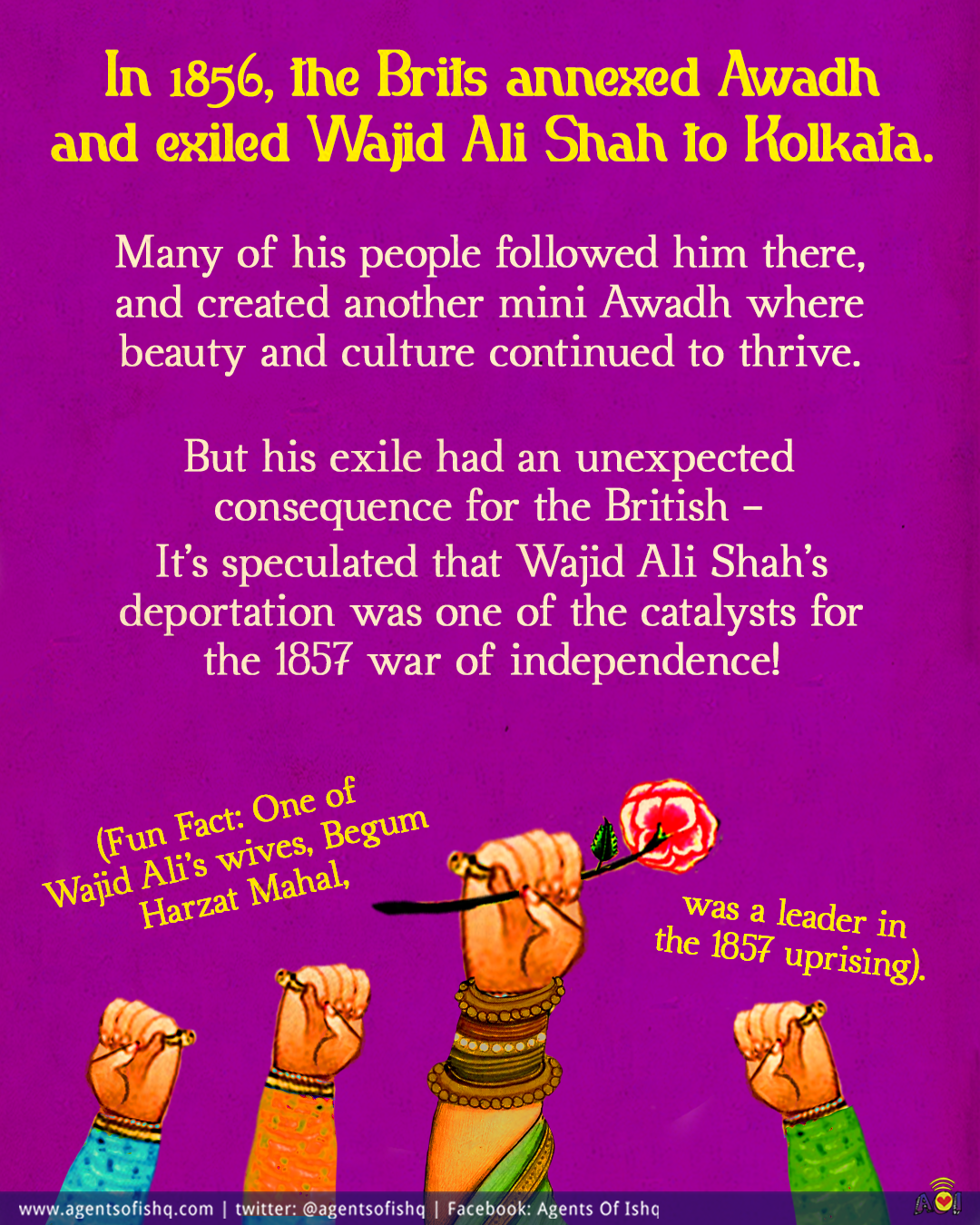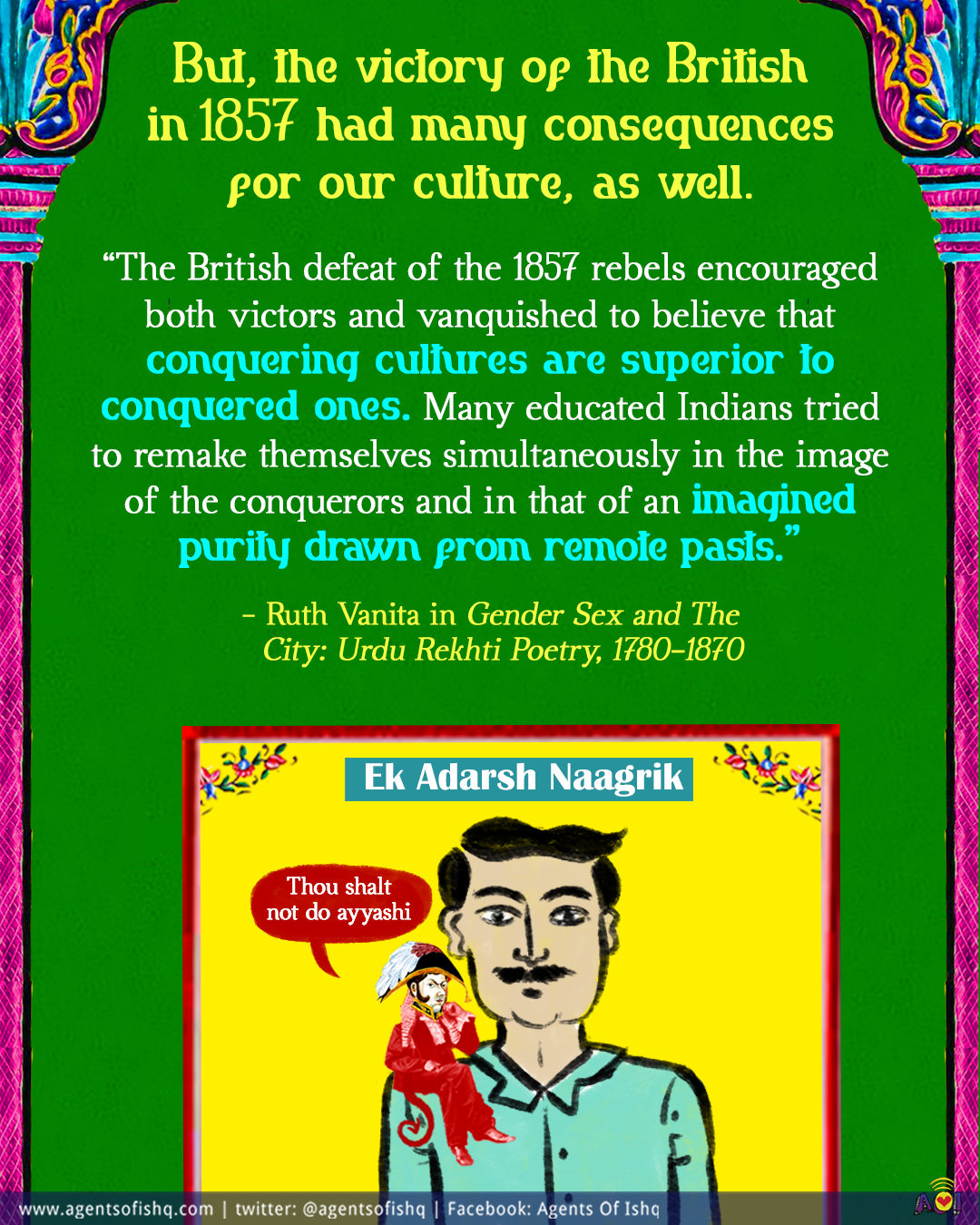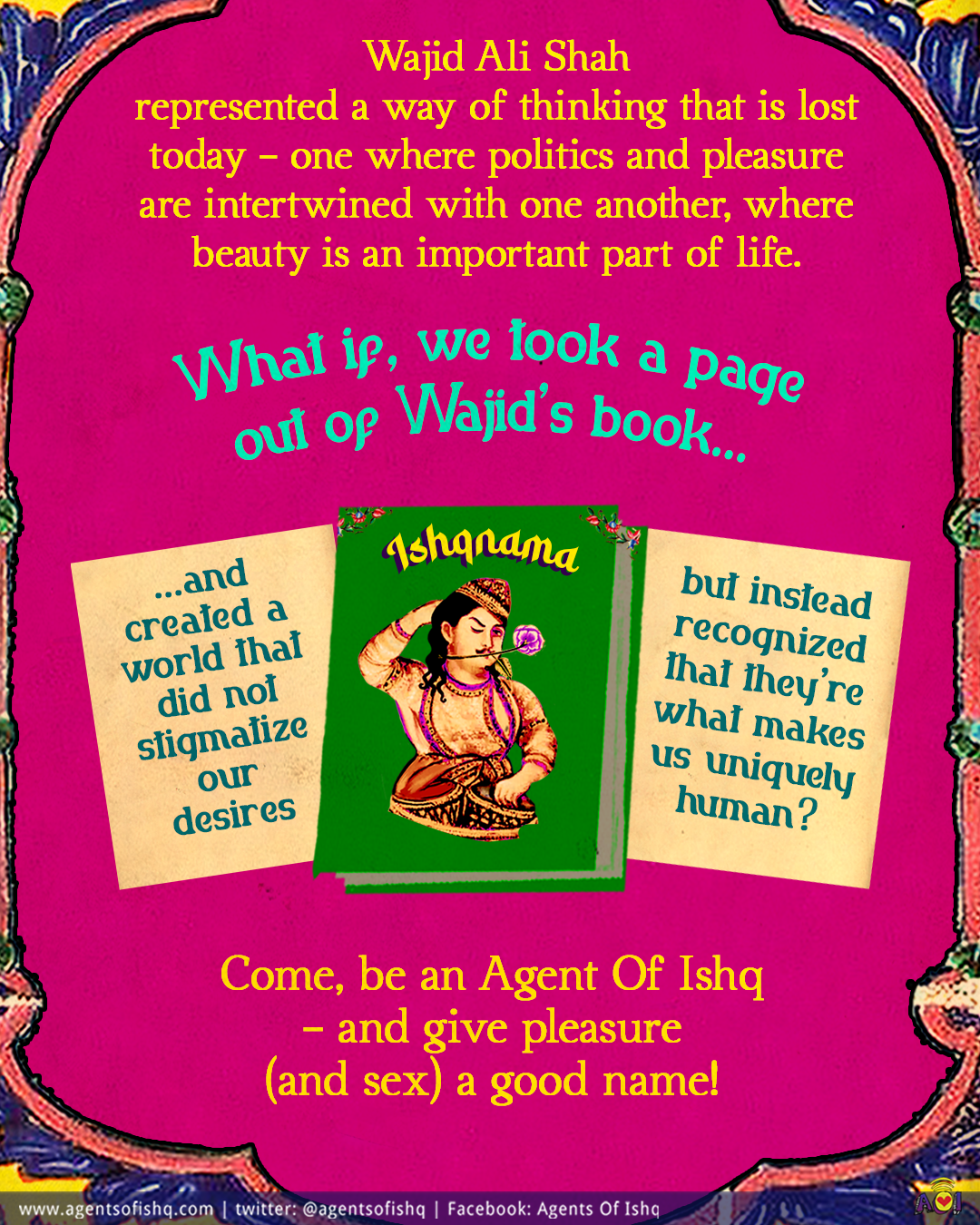Card 1:
English Alt Text:
Wajid Ali Shah winking, in his hand is the Ishqnama
Text on cards
Who taught us to think that Sex, Beauty, Pleasure
are Shameful, Indulgent, Immoral?
Well, the Brits.
This is the story of Wajid Ali Shah, the last Nawab of Awadh (famous for his nip-slip wala angarkha!),
and how the British annexed his throne.
Card 2:
English Alt Text:
Wajid Ali Shah surrounded by the women of his Zenana
Text on cards
Wajid Ali Shah, ruler of aaj ka Lucknow
was indulgent in every sense of the word:
A poet, artist, playwright, creator of Thumri,
the reason galouti kebabs exist
and loverboi of many, many, many women.
He talked openly (and shamelessly) about his sex life.
And even wrote a book about it: The Ishqnama.
Card 3:
English Alt Text:
Wajid Ali Shah sitting beside a reclining Sarfaraz Pari. The Pari is reading a book.
Wajid Ali Shah on his knees, crying while another man takes away Sarfaraz Pari
Text on cards
Ishqnama covered the full spectrum of Wajid’s love/lust life.
Tender moments with his first wife, reading sonnets to each other.
Jealousy when Sarfaraz Begum left him to go roam with another man.
And, perhaps most dramatically,
Sahiba Khanum, who struck her left thigh with a hot Sitar, then limped towards Wajid so he could tend to her - all in an attempt to woo him back.
Card 4:
English Alt Text:
A crying Sahiba Khanum while Wajid Ali looks at her. A Sitar is between them.
Text on cards
But Ishqnama wasn’t only Wajid’s sex diary. It was also a reflection of his politics.
Wajid Ali Shah was, above all, a patron of art and pleasure.
He surrounded himself with beautiful lovers - many of whom were also beautiful artists.
Those who pleased him with their art - regardless of race or class - were rewarded with “the pleasure of his company” - matlab, with important positions in his court!
Under his rule, Awadh thrived as a centre of culture, art, music, poetry, theatre - all “indulgences” that the British hated.
Card 5:
A book with Naik Akhta, Sarfaraz Pari and Wajid Ali Shah’s name. Pari’s name is circled and labeled as “Bewafa hai”
English Alt Text:
Text on cards
According to the British, a “Good Ruler” (aka a Good Man) was someone who was austere, pure, disciplined - a man who was in control of his desires, rather than being controlled by them.
The East India Company, who had eyed Awadh since the 1760s, thus began their smear campaign -
“A leader who partakes in pleasure khullam khulla? Kuch toh gadbad hai.”“Wajid Ali’s character is dheela.”
“He spends the days and nights in the female apartments.”
“He has resigned himself wholly to debauchery, dissipation, and low pursuits!”
Card 6:
English Alt Text:
An angry British man looking at Wajid Ali. Wajid is bearing his thigh and posing with a rose in his bed.
Text on cards
In 1856,
The East India Company annexed Awadh
Dethroned Wajid Ali Shah
And exiled him to Kolkata.
But his exile had unexpected consequences for the Brits -
Many of his people followed him to Kolkata, and created another mini Awadh where beauty and culture continued to thrive.
And it’s speculated that Wajid Ali Shah’s exile was one of the catalysts for the 1857 revolt against the British!
(Fun Fact: One of Wajid Ali’s wives, Begum Harzat Mahal, was a leader in the 1857 uprising.)
Card 7:
English Alt Text:
Wajid Ali on the cover of Parikhana. He is posing with a flower in his mouth.
Text on cards
But, the victory of the British in the war of 1857
had many consequences for our culture, as well.
“The British defeat of the 1857 rebels encouraged both victors and vanquished to believe that conquering cultures are superior to conquered ones. Many educated Indians tried to remake themselves simultaneously in the image of the conquerors and in that of an imagined purity drawn from remote pasts.”
Card 8:
Text on cards
Wajid Ali Shah represented a way of thinking that is lost today - one where politics and pleasure are intertwined with one another, where beauty is an important part of life.
What if, we took a page out of Wajid’s book
and created a world that did not stigmatize our desires
where we could see our own and each others’ pleasures -
and recognize that they’re what makes us uniquely human?
Come, be an Agent Of Ishq - and give pleasure (and sex) a good name!
Sources:
Ruth Vanita, Gender Sex and The City: Urdu Rekhti Poetry, 1780-1870
